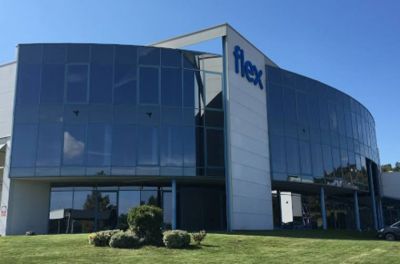
The University of Pannonia has partnered with Flex on a government supported research project to improve the performance and reliability of solder technology used in automotive parts production and performance-critical products.
The project entitled ’Flux-minimized Soldering for High Voltage Automotive Products’ is co-funded by Flex, The University of Pannonia and the Ministry of Innovation and Technology (ITM), at a cost of HUF 1,339,723,068. Its goal is to develop a new type of soldering technology to improve the performance and reliability in high-voltage electronic products like to those used in hybrid and autonomous vehicles.
“The reliability of high-voltage electronic assemblies can be affected by a number of factors”, says Dr. Attila Lukács, Engineering Manager at Flex in Zalaegerszeg. “We are working with the University of Pannonia to develop a more reliable commercial solution that meets technical, economic and environmental requirements by creating a high-quality solder joint without flux or a minimal amount of flux.”
Flux is a chemical agent used in the soldering process that helps the solder flow onto the work surface to complete a joint. However, it can leave a residue behind that can affect performance, particularly in high-voltage electronic assemblies like those used in the automotive sector.
“Our goal is to meet the growing market demand for an alternative solution”, says Dr. István Szalai, Professor from The University of Pannonia. “Working with Flex, one of the largest electronics manufacturers in the world and their Failure Analysis laboratory in Zalaegerszeg brings significant intellectual value and commercial know-how to this venture.”
Addressing the issues of ionic contamination from flux residues, ion migration, material precipitation, creep currents, and so on, will require the team to investigate solutions including surface cleaning and activation with atmospheric pressure plasma. This collaboration is important for the competitiveness of the region and supports the growing automotive sector in Hungary.
The project ID: 2020-1.1.2-PIACI KFI-2020-00141.
(Photo: flex.com)
Official press relase >>>
Please wait while flipbook is loading. For more related info, FAQs and issues please refer to DearFlip WordPress Flipbook Plugin Help documentation.
